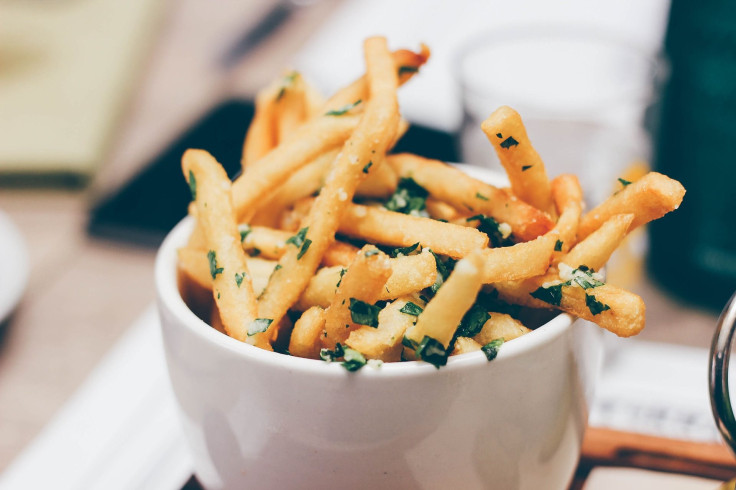French Fries Linked To Depression? Study Finds Fried Food Increases Risk Of Anxiety
Regular eating of fried foods is associated with several health issues such as coronary artery disease, heart failure, heart attack and stroke. Here is one more reason to skip your next bowl of french fries. Researchers have found that fried food consumption contributes to anxiety and depression.
The research team from Hangzhou, China, conducted a population-based study with 140,728 people to identify the correlation between fried food consumption and the risk of developing mental health issues.
The findings suggested frequent consumption of fried foods, especially fried potatoes, was associated with a 12% higher risk of anxiety and a 7% higher risk of depression.
Scientists believe acrylamide, a chemical formed during the frying process, is the culprit behind it. They found out that long-term exposure to acrylamide could induce anxiety and depressive-like behaviors through oxidative stress-mediated neuroinflammation.
As part of the research, scientists evaluated the behavior of zebrafish exposed to acrylamide. They found zebrafish that had long-term exposure dwelled in dark zones within the tank, indicating a higher anxiety level.
After exposure to the chemical, zebrafish that generally form schools with their species showed reduced ability to socialize, as they were found swimming not closely with other zebrafish.
"These outcomes are expected to both epidemiologically and mechanistically open an avenue in the significance of reducing fried food consumption for mental health and provide evidence to understand acrylamide-triggered anxiety and depression," the researchers wrote.
According to them, the findings do not mean people should panic about the negative effects of fried foods. It is a wake-up call to reduce the intake of fried foods for better mental health and overall well-being.
Meanwhile, some experts suggested the possibility of reverse causation. They believe mental health issues like depression and anxiety could make people change their diets and they might turn to comfort foods as a way of self-medicating.
"The human component of this study may indicate just what it purports: that higher intake of fried food increases the risk of anxiety/depression," Dr. David Katz, a lifestyle medicine specialist who was not involved in the research, told CNN." However, the causal pathway could just as readily go the other way: people with anxiety/depression turn to 'comfort food' with increasing frequency for some semblance of relief."




























